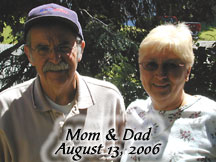Hi Gevera-
My name is Tony Obregon and I came across your name online as someone that may be interested in a new report that sheds light on the economies of Alzheimer’s drug development and treatment.
The study was sponsored by ACT-AD, a coalition of 49 national organizations representing patients, providers, caregivers, consumers, older Americans, researchers and employers and shows that the U.S. could save trillions of dollars by 2050 if critical Alzheimer's treatments were available. The report will be revealed during a press briefing on Monday, May 14 from 12-1pm EDT at the National Press Club in Washington, DC. The briefing will be led by a distinguished panel of experts, including report authors and patient advocates and will also be available via teleconference/web cast. I’ve pasted the media alert below with additional information.
We invite you to attend the press briefing, if you can, either by phone or in person. If you cannot join, I hope you will spread the word regarding this study and the necessity for accelerating advanced treatment for Alzheimer’s patients. If you would like, I can send you the embargoed report when it is made available.
Feel free to contact me, Gevera, if you have any questions.
Thanks,
Tony
415.365.8531 work
tony_obregon@sfo.cohnwolfe.com
NATIONALLY RECOGNIZED RESEARCHERS PROVIDE FIRST SCIENTIFIC PROJECTIONS
ON ECONOMIC VALUE OF TREATMENTS THAT DELAY ONSET OF ALZHEIMER'S DISEASE
U.S. COULD SAVE $TRILLIONS BY THE MIDDLE OF THIS CENTURY
WHAT:
The first scientific estimates of the potential economic impact that new treatments for Alzheimer's disease could have on the U.S. economy suggest that trillions of dollars would be saved. The full findings will be announced during a press briefing led by a distinguished panel of experts, including report authors and patient advocates. The paper will also be posted with National Bureau of Economic Research (NBER).
While recent estimates have upped the number of people likely to be affected by Alzheimer’s disease and the bankrupting cost of care in coming decades, this new study is the first to project the economic benefit if the Alzheimer’s crisis were to be blunted by disease delaying drugs emerging from research pipelines. As such, the study findings provide an important missing piece in the argument to speed access to promising Alzheimer’s treatments and will help to move the national debate about the disease toward mobilizing solutions.
The study was sponsored by ACT-AD, a coalition of 49 national organizations representing patients, providers, caregivers, consumers, older Americans, researchers and employers seeking to accelerate development of potential cures and treatments for Alzheimer’s disease.
WHY:
There are more than 5 million people in the United States living with Alzheimer’s disease. Given the rapidly increasing age of the U.S. population, the number of people with Alzheimer’s disease will double in the next twenty years. One in 10 people over 65 – or 5.6 million Americans – will have the disease by 2010. Without interventional therapy, the number of cases is expected to rise to 13.5 million by 2050. Currently available treatments for Alzheimer’s disease provide only temporary symptomatic relief and only for some patients, while therapies under FDA review may significantly delay or reverse the course of the disease.
WHO:
John Vernon, Ph.D., Assistant Professor in the Finance Department at the University of Connecticut School of Business, where he teaches courses in finance, risk management and insurance, decision analysis, and computer-based simulation modeling.
WHO:
Robert Goldberg, Ph.D., co-founder, Vice President and Director of Programs for the Center for Medicine in the Public Interest (CMPI), a non-profit educational charity dedicated to the diagnosis and treatment of diseases at lower costs.
Daniel Perry, Chair of the ACT-AD Coalition and Executive Director of the non-profit organization Alliance for Aging Research, the nation's leading citizen advocacy organization dedicated to promoting a broad agenda of medical and behavioral research to improve the health and independence of older Americans.
Meryl Comer, Alzheimer’s Association National Capital Area Chapter Board Member, and Emmy-award winning reporter, producer, moderator, and talk show host with more than 30 years of experience in broadcast journalism. Ms. Comer is also principal caregiver for her husband who has advanced Alzheimer’s.
WHEN:
Monday, May 14, 2007 12 - 1pm ET
WHERE:
National Press Club, 529 14th St. NW, 13th Floor - Washington, DC 20045, Lisagor Room
Lunch will be served
Or
DIAL-IN INFO TO BE PROVIDED
The final Verse
4 months ago










